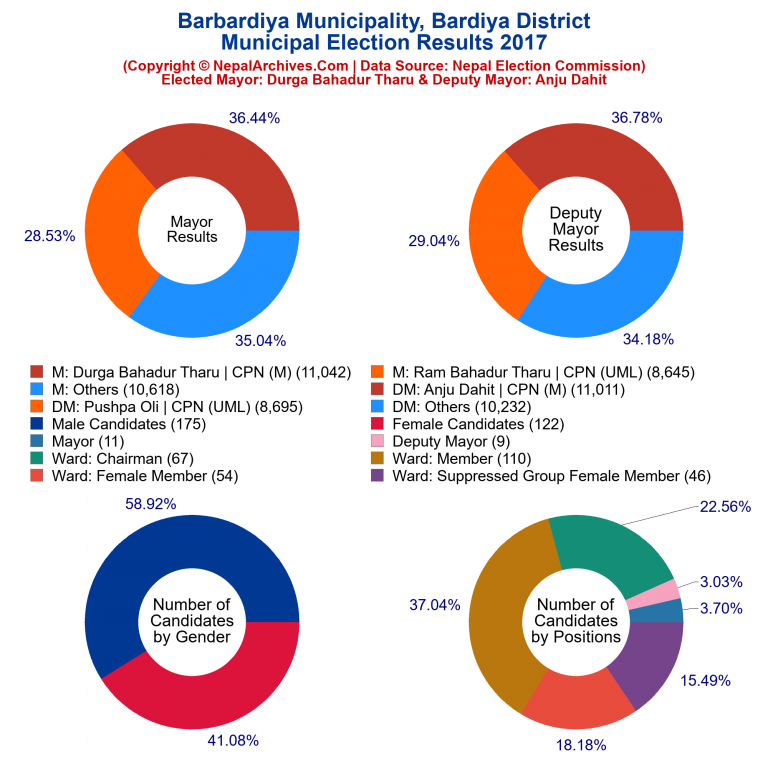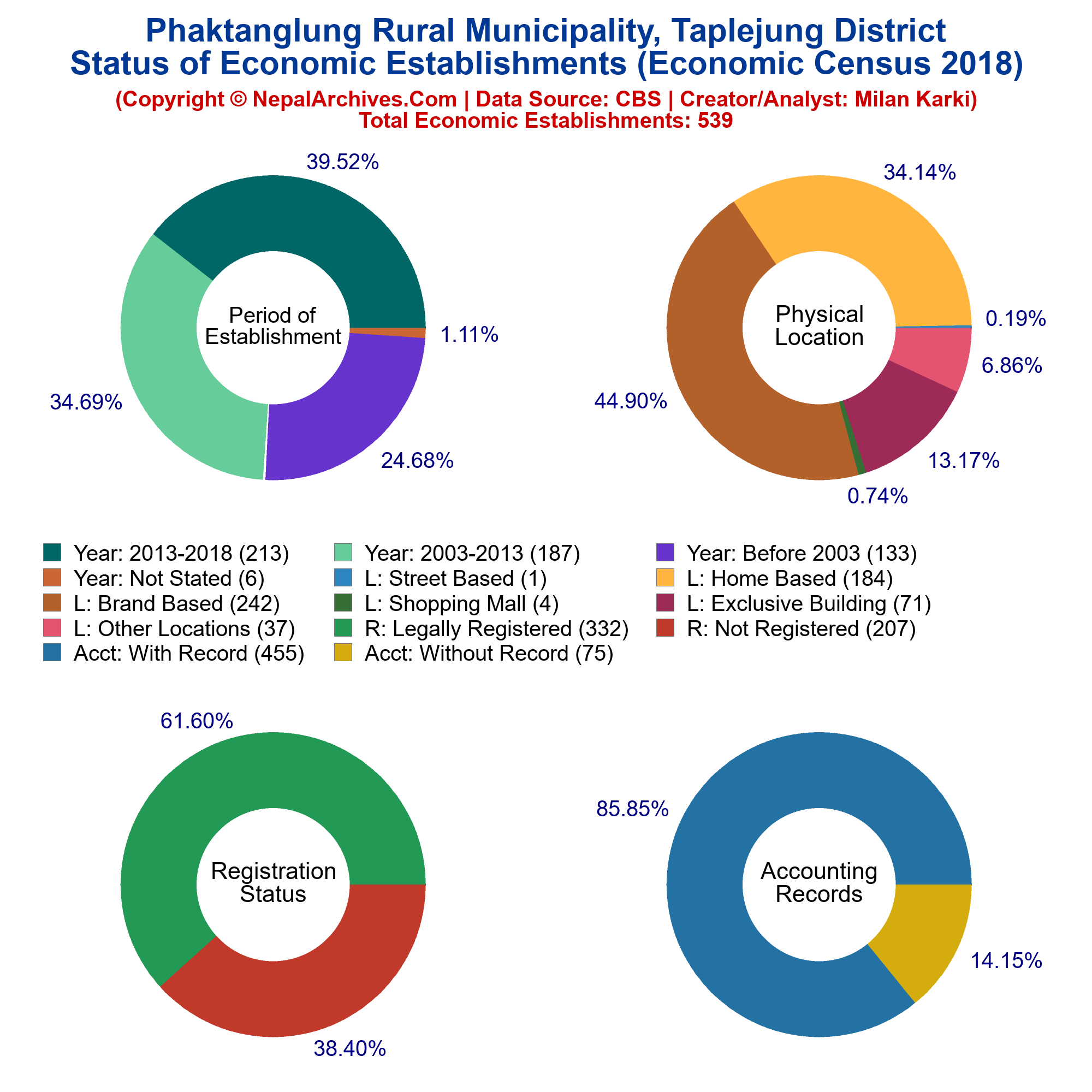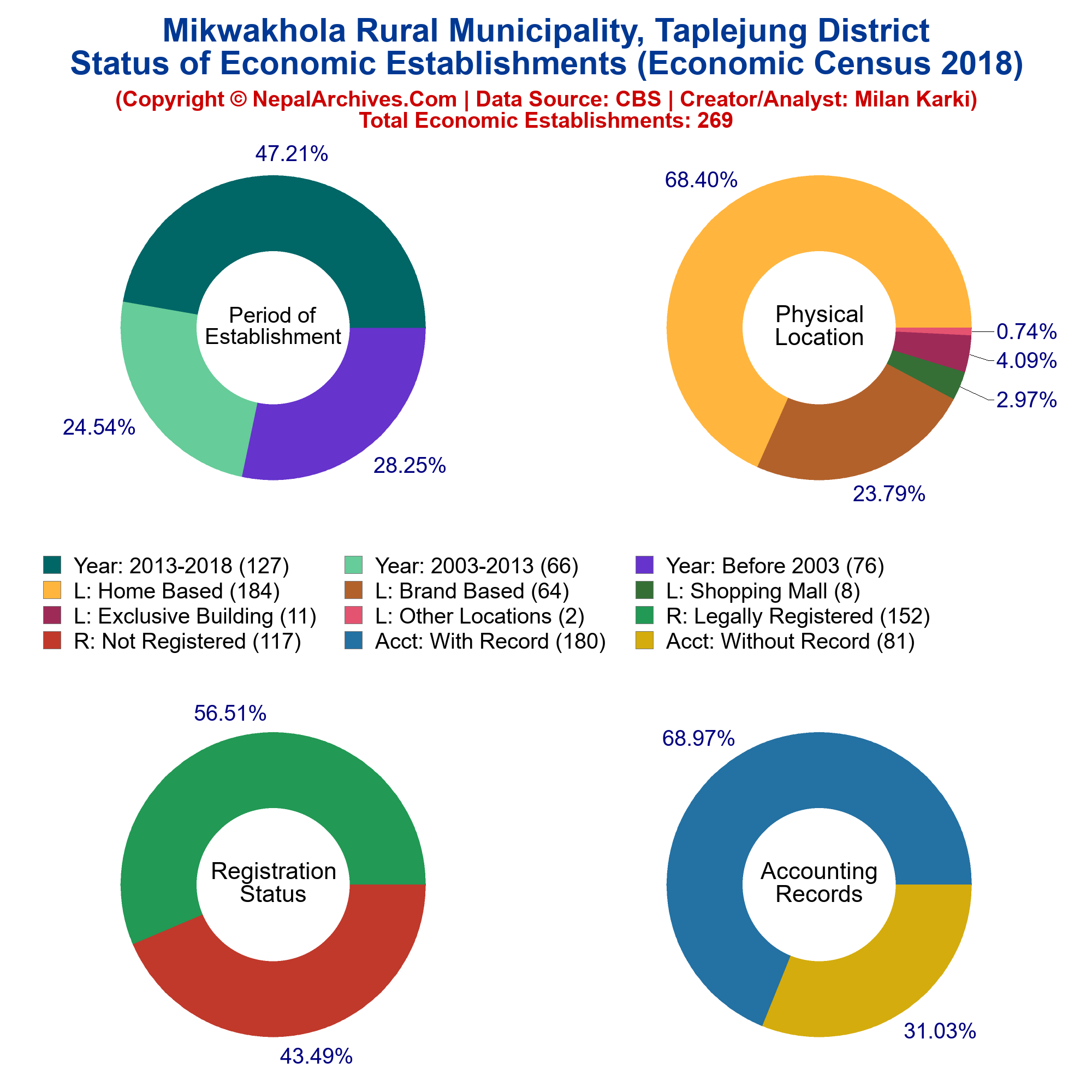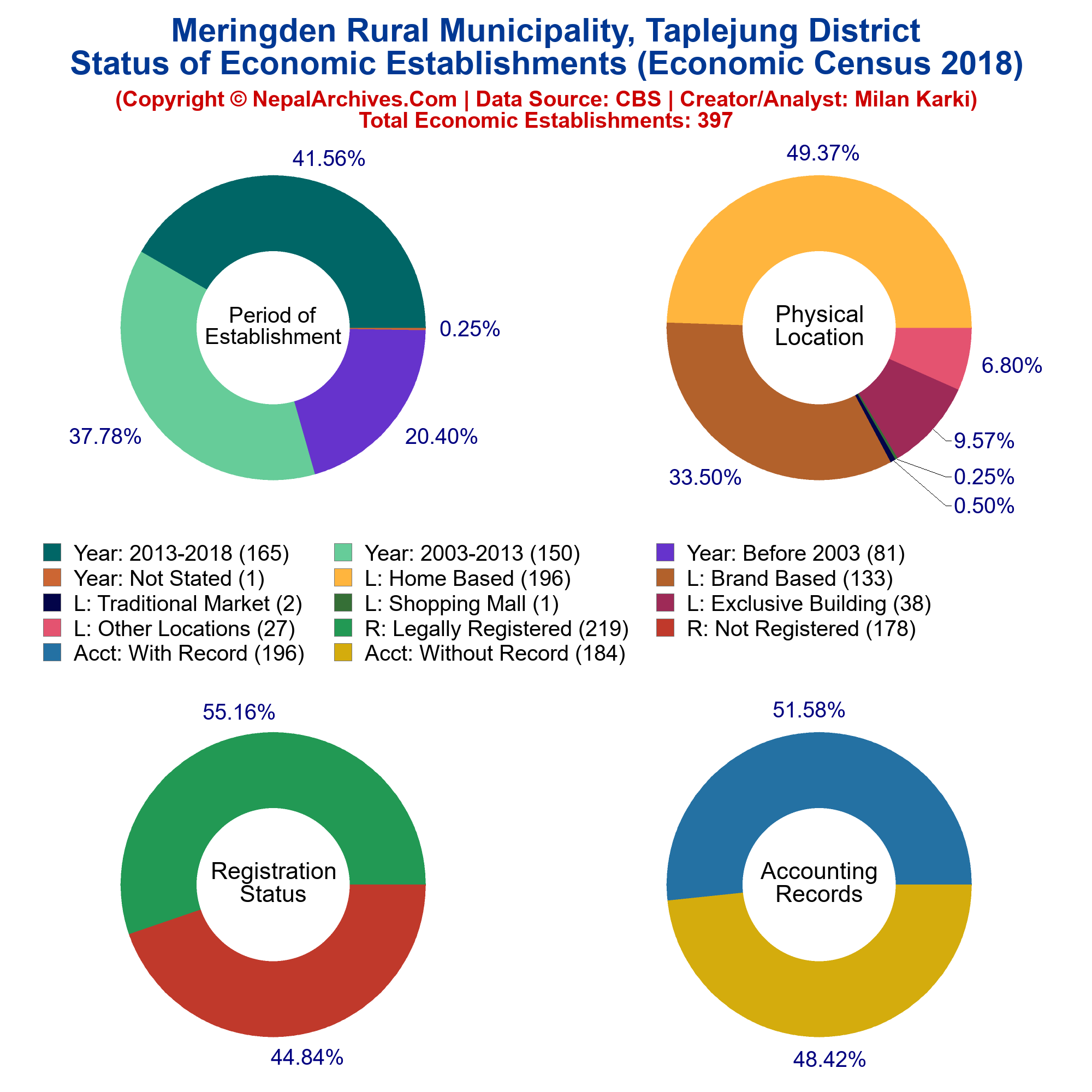January 25, 2020
Barbardiya Municipality (Bardiya) Election Results 2017
In 2017 election of Barbardiya Municipality (Bardiya district), candidate Durga Bahadur Tharu of Nepal Communist Party (Maoist) (CPN (M)) secured 11,042 (36.44%) votes out of total votes of 30,305 and was elected as a Mayor. The first runner-up candidate was Ram Bahadur Tharu of Nepal Communist Party (Unified Marxist-Leninist) (CPN (UML)) who secured 8,645 (20.91%) of votes. The rest of 9 candidates for the position of Mayor secured combined 10,618 (17.52) of votes.
Similarly, for the position of Deputy Mayor, candidate Anju Dahit of Nepal Communist Party (Maoist) (CPN (M)) secured 11,011 (36.78%) and was elected as a Deputy Mayor, while Pushpa Oli of Nepal Communist Party (Unified Marxist-Leninist) (CPN (UML)) secured 8,695 (21.23%) of votes and came in second position. Other 7 candidates who contested for Deputy Mayor secured combined 10,232 (17.09) of votes.

As illustrated in the pie chart, there were total 297 candidates contested in various positions with gender ratio of 175 (58.92%) males and 122 (41.08%) females. Moreover, there were total 67 candidates contested for ward chairman positions in 11 wards. Same as, total 110 candidates had contested for ward member positions while 54 females and 46 females from depressed group (dalit) had contested for female member position in each ward.
Similarly, for the position of Deputy Mayor, candidate Anju Dahit of Nepal Communist Party (Maoist) (CPN (M)) secured 11,011 (36.78%) and was elected as a Deputy Mayor, while Pushpa Oli of Nepal Communist Party (Unified Marxist-Leninist) (CPN (UML)) secured 8,695 (21.23%) of votes and came in second position. Other 7 candidates who contested for Deputy Mayor secured combined 10,232 (17.09) of votes.

As illustrated in the pie chart, there were total 297 candidates contested in various positions with gender ratio of 175 (58.92%) males and 122 (41.08%) females. Moreover, there were total 67 candidates contested for ward chairman positions in 11 wards. Same as, total 110 candidates had contested for ward member positions while 54 females and 46 females from depressed group (dalit) had contested for female member position in each ward.


